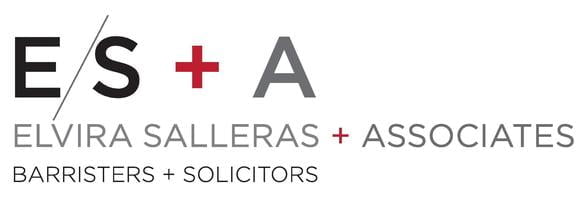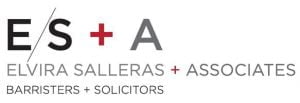INTRODUCTION
President Muhammadu Buhari assented to the Companies and Allied Maters Act, 2020 (“CAMA 2020”) on 7th August 2020 which repeals the Companies and Allied Matters Act, Cap C.20, Laws of the Federation of Nigeria, 2004 (“the old Act”).
CAMA 2020 creates a more robust corporate governance framework for corporate entities and reforms certain administrative and regulatory constrictions inherent within Nigeria’s business environment in alignment with the Nigerian Federal Government’s Ease-of-Doing-Business initiative.
This publication features some of the key provisions of CAMA 2020. Hence, all references to sections are in relation to CAMA 2020.
- COMPANIES
- Incorporation
- Withdrawal/Cancellation/Revocation of Incorporation Certificate
The CAC is now authorized to withdraw, cancel or revoke a certificate of incorporation which was fraudulently, unlawfully or improperly procured and may cause any of the aforementioned actions to be published in the Federal Government Gazette-Section 41.
- Introduction of Statement of Compliance
CAMA 2020 introduces a Statement of Compliance (SOC), signed by an applicant or his agent and indicates that the registration requirements for a company have been complied with– Section 40 (1). The SOC replaces the Statutory Declaration of Compliance (SDC) requirement and eliminates the need for a Legal Practitioner to attest to the SDC which existed under the Old Act.
2. Owning A Common Seal Is No Longer Mandatory
Companies are no longer obliged to own a common seal- Section 98. This was a mandatory requirement under the old Act.
3. Small Companies
- Minimum Number of Directors
Small companies[1] are exempted from the requirement of having a minimum of two directors and are now permitted to have only one director-Section 271. Under the old Act, all companies were mandated to have at least two directors.
2. Exemption from Audit Requirement
Small companies and companies which have not carried on business since incorporation (excluding insurance companies, banks or any other company prescribed by the Corporate Affairs Commission {“CAC”}) are now exempted from the requirements of the law concerning the audit of accounts in respect of a financial year-Section 402.
4. Shares and Shareholding
- Issuance of Share Certificates
Since companies are no longer compelled to own a common seal, a share certificate may now either be issued under the company’s seal (where the company has a common seal or signed as a deed by the company-Section 171(3).This contrasts with the position under the old Act which mandated the issuance of share certificates under the company’s seal.
2. Single shareholding
One person may now solely incorporate a private company, subject to complying with the requirements of CAMA 2020 regarding such companies-Section 18. Under the old Act, all companies were mandated to have at least two shareholders.
3. Introduction of a Statutory Right of First Offer and Other Restrictions
Subject to the provisions of the articles of association of a company, private companies may now prohibit:
- Their members from transferring shares to a non-member, without first offering the said shares to existing members;
- the sale of company assets exceeding 50% of the total value of the company’s assets without the consent of all its members; and
- a member or group of members, acting together, from selling or agreeing to sell more than 50% of their shares in a company to a non-member except such non-member has offered to buy all the company’s existing members’ interests on the same terms-Section 22.
4. Introduction of a Minimum Issued Share Capital
The Minimum Issued Share Capital (“MISC”) replaces the Minimum Authorised Share Capital (“MASC”) requirement which existed under the old Act.
Additionally, CAMA 2020 increases the MISC to a minimum of ₦100,000.00 and ₦2,000,000.00 for private companies and public companies, respectively-Section 27(2). Under the old Act, the MASC requirement for private companies and public companies was a minimum of ₦10,000 and ₦500,000, respectively.
5. Validation of Improperly Issued Shares by Companies
Companies are now authorised to validate the issuance/allotment of improperly issued shares via special resolutions-Section 148. It is only in circumstances where a company refuses to do this that the affected party may refer to the former position, under the old Act, by applying to a court to validate the issuance/allotment of such shares
5. General Meetings
- Venue of General Meetings
Private companies may now elect to hold general meetings electronically provided that the conduct of such meetings is in accordance with their articles of association-Section 240 (2). Under the old Act, all statutory and annual general meetings were required to take place in Nigeria.
2. Expansion of Ordinary Businesses to be transacted at Annual General Meetings (AGMs)
The disclosure of company managers’ remuneration has been included as part of the ordinary businesses to be transacted at AGMs-Section 238.
3. Entitled Recipients of Notices of General Meetings of Public Companies
The CAC has been included as one of the parties entitled to receive notice of general meetings of public companies-Section 243(1). This was not the pos.ition under the old Act.
6. Appointment of Company Secretary and Maintenance of Register
The appointment of a company secretary is now voluntary for small companies-Section 330.
Additionally, only public companies are required to maintain a register of secretaries-Section 336.
The above requirements applied to all companies under the old Act.
7. Public Companies
- Directors’ Obligation to Disclose Multiple Directorship
Contrary to what obtained under the old Act, proposed directors of public companies (PCs) are now obliged to disclose multiple directorship positions held by them in other PCs- Section 278(2).
Furthermore, a person is now prohibited from holding directorship positions in more than five public companies-Section 307(3).
2. Display of Audited Accounts on Public Companies’ Websites
All public companies are now mandated to keep their audited accounts displayed on their websites-Section 374(6). This mirrors the Nigerian Stock Exchange and Securities and Exchange Commission’s existing requirement for such companies.
3. Separation of the Chairman and Chief Executive Officer’s Positions
It is now forbidden for the same person to hold both the positions of Chairman and Chief Executive Officer in a public company-Section 265(6). This is in line with global best practices and the Nigerian Code of Corporate Governance, 2018.
4. Appointment of Independent Directors by Public Companies
Now, public companies must have a minimum of three independent directors- Section 275(1).
5. Increased Threshold of Substantial Interest
A person is a substantial shareholder in a public company if he holds (under his name or his nominee’s) shares in the company which entitle him to exercise at least 5% , formerly 10% under the old Act, of the company’s unrestricted voting rights at any general meeting- Section 120(2).
6. Re-registration of a Public Company as an Unlimited Company
A public company may now be re-registered as an unlimited company- Section 75. This option was not included in the old Act.
8. Alternative to The Attorney General of The Federation’s Consent for Companies Limited By Guarantee
There is now an alternative to the requirement for the Attorney General of the Federation’s (AGF) consent to the incorporation of companies limited by guarantee (CLG).
If the AGF does not grant authority to the promoters of a CLG within 30 days of the promoters’ application to the AGF for this purpose (where there are no objections or other cogent reasons for refusal), the promoters are permitted to place an advert in three national dailies and invite objections within 28 days. Where there are no objections to the advertisements, the CAC is now empowered to assent to the application and register the company without the AGF’s Consent- Section 26.
9. Acceptance of Electronic Signatures and Creation of Electronic Registers of Transfer
Under CAMA 2020, an electronic signature meets the requirement for signing of documents. Accordingly, electronic registers must now be included in companies’ registers of transfers. This provision aligns with modern technology and the Evidence Act of 2011.
Furthermore, a document requiring a company’s authentication no longer needs to be signed as a deed, subject to the specific provisions of CAMA 2020 to the contrary. Hence, such documents may now be signed by the company’s director, secretary, or other authorized officers.
10. Reduced Filing Fees for Charges
The total filing fees (the fees) payable to the CAC for registration or release of a charge has been reduced to a maximum of 0.35% of the value of the charge-Section 222 (12).
Prior to CAMA 2020, the fees for private and public companies were fixed at 1% and 2%, respectively.
11. Modified Procedure for Application for Exemption of a Foreign Company
Foreign companies, desirous of carrying on business in Nigeria without being incorporated under the law, can direct their applications for exemption from the requirement for incorporation directly to the Minister of Trade. Such companies are obliged to notify the CAC of the grant of exemption within thirty days of obtaining it failing which they are liable to a penalty-Section 80.
Under the old Act, applications for exemption were directed to the President and addressed to the Secretary to the Government of the Federation.
12. Winding Up
- Expansion of Preferential Payments
Deductions made from the remuneration of employees and contributions of the company under the Pension Reform Act have been added to the list of preferential payments to be paid in the event of a company winding up– Section 657(1). This provision was not in the old Act.
2. Protection for Suppliers of Gas, Water, Electricity and Communication Services
A protective measure has been created for suppliers of the above essential services under CAMA 2020. Such suppliers now have the option of entering into an arrangement with officer-holders[2] of specified companies[3] within which the office-holders personally guarantee to pay charges, incurred by the company, after the date on which:
- The company entered administration;
- A voluntary arrangement for the company took effect;
- The company went into liquidation; or
- A provisional liquidator for the company was appointed–Section 665.
However, such supplier is prohibited from making the payment of outstanding charges, due before any of the above effective dates, a condition for the supply of the services-Section 665.
- LIMITED LIABILITY PARTNERSHIPS (LLPs)
CAMA 2020 creates a new business structure referred to as LLPs. An LLP may:
- Sue and be sued in its name;
- Acquire, own, hold and develop or dispose of movable, immovable, tangible or intangible property;
- Elect to have a common seal; and
- Do and suffer such other acts and things which bodies corporate may lawfully do and suffer-Section 756.
- INCORPORATED TRUSTEES
- CAC’s Power to Suspend Trustees
Based on a court order, the CAC is now empowered to suspend the trustees of an association and appoint an interim manager(s) to manage the association’s affairs where it reasonably believes that:
- there is or has been any misconduct or management in the administration of the association; or
- it is necessary or desirable for any of the following purposes-
- protecting the association’s property; or
- securing a proper application of the association’s property towards achieving its objects; or
- public interest.
- the association’s affairs are being run fraudulently-Section 839(1).
2. Merger of Associations
Two or more associations with similar aims and objects may now be merged under terms and conditions as the CAC may prescribe by regulation-Section 849.
Also, without prejudice to the provisions of section 849, the CAC can now direct that for the purposes of CAMA 2020:
- an association be treated as forming part of an already registered association; and
- two or more associations having the same trustees to be treated as a single association-Section 831.
For further enquiries, please contact:
Elvira Salleras
Adewunmi Adesina
DISCLAIMER: The information and opinions in this publication are for general information purposes only. They are not intended as specific legal or other professional advice and should not be relied upon or treated as a substitute for specific advice. Elvira Salleras + Associates can accept no responsibility for any loss arising from reliance on the general information contained in this publication.
[1] According to Section 394(3) of the CAMA 2020, a company will be regarded as a small one, if it satisfies the following conditions in any financial year:
a)It is a private company;
b)its annual turnover is not more than ₦120,000,000 or such amount as may be fixed by the Corporate Affairs Commission (CAC);
c)its net assets value is not more than ₦60,000,000 or such amount as may be fixed by the CAC;
d)none of its members is an alien;
e)none of its members is a government, government corporation or agency or its nominee; and
f)in the case of a company having share capital, the combined shareholding of its directors is at least 51% of its equity share capital.
[2] i.e., the administrator, nominee, supervisor, liquidator or provisional liquidated, as the case may be, Section 665(3), Companies and Allied Matters Act, 2020.
[3] The provision applies to a company:
- That enters administration; or
- For which a company voluntary arrangement under Chapter 17 of the Act has been approved; or
- That goes into liquidation; or
- For which a provisional liquidator is appointed. Section 665(1), Companies and Allied Matters Act, 2020.



